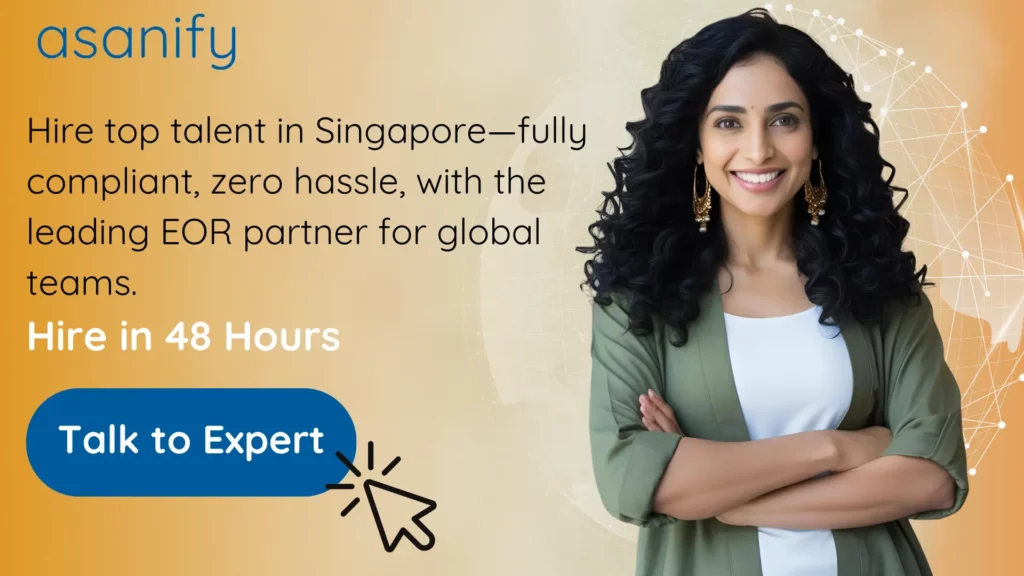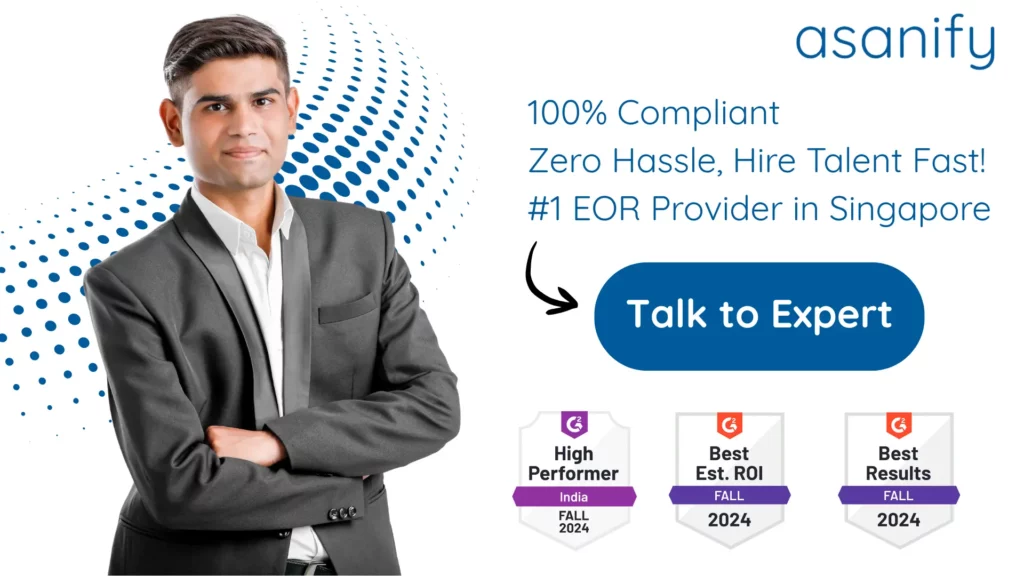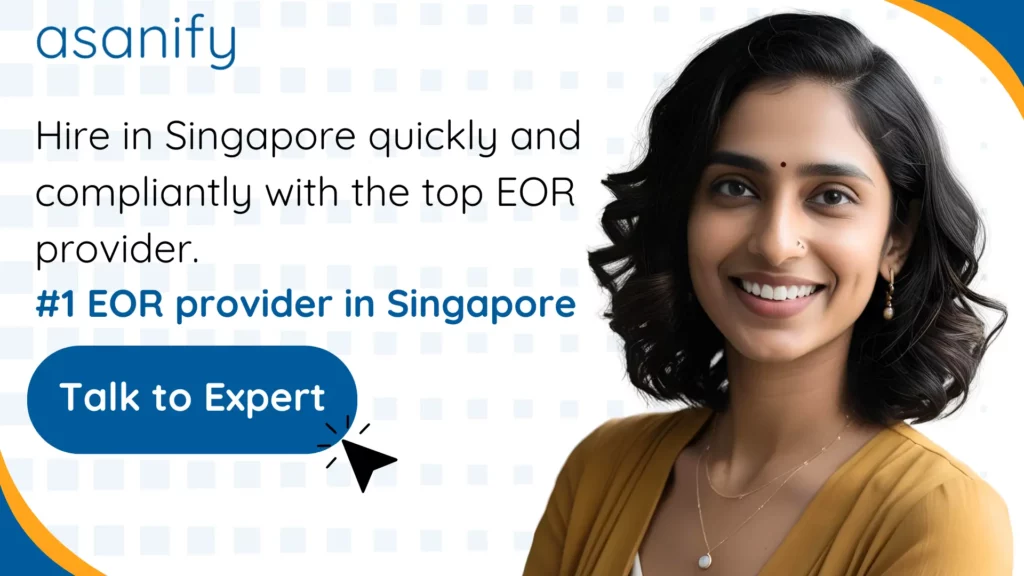Expanding your business into Singapore offers access to one of Asia’s most dynamic economies and a global hub for finance, trade, and innovation. However, before hiring in Singapore, employers must understand the country’s structured work pass and immigration framework. Securing the correct work permit or visa for non-Singaporean employees is essential to remaining compliant with local regulations and ensuring a smooth onboarding process.
Navigating these requirements can be complex, as they vary based on the employee’s nationality, job role, salary level, and the type of work pass required. Employers must ensure all documentation is accurate, complete, and submitted within the prescribed timelines. Partnering with experienced immigration professionals or an Employer of Record (EOR) can greatly simplify the process, reduce administrative burdens, and minimize compliance risks.
Table of Contents
- Overview of Singapore’s Work Permit and Visa System
- Understanding Requirements and Eligibility
- Types of Work Passes in Singapore
- Advantages of the Employment Pass (EP)
- Application Process for Employers
- Required Documents
- Processing Timelines
- Employer Responsibilities and Compliance
- Tips for a Smooth Application Process
- How an Employer of Record Can Help
- How Asanify Can Help
- FAQs
Overview of Singapore’s Work Permit and Visa System
Singapore regulates foreign employment through a structured work pass system administered by the Ministry of Manpower (MOM). The type of pass required depends on the applicant’s profession, qualifications, and salary level.
- Singapore citizens and permanent residents – No work pass required.
- Foreign nationals – Must secure a valid work pass before employment.
- Multiple pass types – Employment Pass (EP), S Pass, and Work Permit, among others.
- Employer-driven process – Employers apply for the pass before the foreign employee can enter or begin work.
- Two-step process – Apply for the work pass, then complete in-country formalities (issuance and medical exam if required).

Understanding Requirements and Eligibility
Before starting the application process, both employers and employees must understand Singapore’s work pass regulations. Singapore citizens and permanent residents can work without restrictions, while all other foreign nationals require a valid work pass such as an Employment Pass, S Pass, or Work Permit to be employed legally. Requirements vary depending on the job role, salary level, qualifications of the worker, and the specific pass category being applied for.
Who Needs a Work Pass in Singapore
Most non-Singaporean nationals must hold a valid work pass to be employed in Singapore. Citizens and permanent residents of Singapore do not require work authorization. For all other foreign nationals, the employer must secure the appropriate work pass such as an Employment Pass, S Pass, or Work Permit before the employee can legally begin work.
Key Conditions for Obtaining a Work Pass
To qualify for a work pass, applicants typically must:
- Have a confirmed job offer from a Singapore-registered employer.
- Meet minimum salary thresholds set by the MOM.
- Possess qualifications and relevant work experience for the role.
- Pass a medical examination if required.
- Have a clean employment and immigration record.
Employer and Employee Eligibility
Employers must be registered in Singapore and have a strong compliance record with MOM regulations. Employees must meet the requirements for their pass category such as the EP for professionals, S Pass for mid-skilled workers, or Work Permit for specific sectors like construction or domestic work.
Suggested Read: Remote Employees Onboarding Checklist with EOR in Saudi Arabia
Types of Work Passes in Singapore
- Employment Pass (EP) – For professionals, managers, and executives earning a minimum qualifying salary.
- S Pass – For mid-skilled staff meeting salary and qualification criteria.
- Work Permit – For semi-skilled workers in approved sectors.
- Personalised Employment Pass (PEP) – A more flexible pass for high-earning professionals.
- EntrePass – For entrepreneurs starting and operating businesses in Singapore.
Comparing Work Pass Types
| Pass Type | Purpose | Duration | Notes |
| Employment Pass (EP) | Professionals and executives | Up to 2 years | Renewable; tied to salary & qualifications |
| S Pass | Mid-skilled workers | Up to 2 years | Subject to quota and levy |
| Work Permit | Sector-specific roles | Up to 2 years | Quota and levy apply |
| Personalised Employment Pass (PEP) | High-earning professionals | 3 years | Greater job flexibility |
| EntrePass | Entrepreneurs | 1 year | Renewable based on business performance |

Advantages of the Employment Pass (EP)
The EP provides greater flexibility and longer validity compared to other work passes. It also allows dependent passes for family members and offers a pathway for permanent residency applications.
Additional benefits of the Employment Pass include:
- No foreign worker levy or quota requirements for employers.
- Easier renewal process for eligible candidates.
- Flexibility to change employers, provided a new EP application is approved.
- Eligibility to apply for a Personalised Employment Pass (PEP) for greater job mobility.
- Access to certain government schemes and professional networking opportunities.
Application Process for Employers
- Employer applies online for the chosen work pass via the MOM portal.
- MOM reviews and approves the application if criteria are met.
- In-Principle Approval (IPA) is issued to the employer and employee.
- Employee enters Singapore and completes any required medical exam.
- Employer requests pass issuance and employee registers fingerprints and photo if needed.
Required Documents
- Completed application form via MOM portal.
- Copy of valid passport.
- Passport-sized photograph.
- Educational and professional certificates.
- Detailed job description and employment contract.
- Company registration details.
Processing Timelines
Work pass processing in Singapore generally takes 1–3 weeks for most Employment Pass (EP) and S Pass applications, depending on the type of pass, the job role, and the completeness of the application. More complex applications, such as the Personalised Employment Pass (PEP) or EntrePass, may take 4–8 weeks.
- Processing timelines may vary based on the applicant’s qualifications, salary level, and the specific pass category.
- Incomplete or inaccurate applications can cause significant delays in approval.
- Certain sectors (e.g., healthcare, education, or finance) may have additional licensing requirements that extend processing time.
- Close coordination between the employer and employee is essential to ensure all required documentation is ready before submission.
- Engaging an Employer of Record or a licensed immigration specialist can help ensure accurate submission and faster approval.
Employer Responsibilities and Compliance
Employers hiring foreign workers in Singapore must:
- Provide legally compliant employment contracts.
- Meet quota and levy obligations (for S Pass and Work Permit holders).
- Renew work passes before expiry.
- Maintain accurate records of employment.
Legal Obligations
- Comply with MOM’s Fair Consideration Framework (FCF).
- Pay salaries meeting the minimum qualifying salary for the pass type.
- Notify MOM of job changes, terminations, or changes in personal particulars.
Consequences of Non-Compliance
- Financial penalties and debarment from hiring foreign workers.
- Possible revocation of existing work passes.
- Reputational damage.
Maintaining Ongoing Compliance
- Conduct regular audits of pass validity.
- Keep HR teams informed on MOM regulation changes.
- Use tracking tools for expiry dates and renewal deadlines.

Tips for a Smooth Application Process
- Begin the application process early.
- Ensure all documents are complete and in the correct format.
- Check salary and qualification thresholds before submission.
- Consider using an Employer of Record (EOR) for hassle-free compliance.
How an Employer of Record Can Help
Partnering with an Employer of Record in Singapore allows companies to legally employ foreign talent without the need to establish a local entity. The EOR acts as the official employer, managing payroll, employee benefits, HR compliance, and work pass applications. This approach reduces administrative burdens, accelerates hiring timelines, and ensures full compliance with Singapore’s employment and immigration regulations.
Additionally, EOR providers draft employment contracts that align with Singapore’s labor laws, minimizing the risk of legal disputes. They also handle every step of the work pass process whether for an Employment Pass, S Pass, or Work Permit ensuring a smooth and compliant onboarding experience for international hires. By leveraging an EOR, businesses can focus on operations and growth while leaving complex employment compliance to trusted local experts.
Suggested Read: Labour Laws in Singapore: A Complete 2025 Guide
How Asanify Can Help
Navigating Singapore’s work pass and immigration process can be complex, especially for businesses hiring international talent. Asanify offers a comprehensive Employer of Record (EOR) solution that simplifies hiring and workforce management in Singapore.
Our services cover everything from securing the right work passes such as Employment Passes, S Passes, or Work Permits to processing payroll, benefits, and compliance, ensuring you remain aligned with Singapore labor laws without setting up a local entity.
With Asanify, you can:
- Hire and onboard foreign talent quickly without administrative delays.
- Ensure compliance with all employment and immigration regulations set by the Ministry of Manpower.
- Expand into Singapore without the cost and complexity of establishing a local company.
If your objective is to grow your team in Singapore efficiently, Asanify’s expertise and end-to-end services make the process smooth, compliant, and hassle-free.
FAQs
Typically 1–2 years, with renewals possible based on ongoing employment and eligibility.
Fees vary by pass type, generally SGD 35–225 for application and issuance.
Yes, but a new pass application must be submitted and approved before the change.
Yes, dependents can apply for Dependant’s Pass or Long-Term Visit Pass.
Yes, salary, qualifications, and quotas vary by pass type.
The employee must stop working immediately until a renewal or new pass is issued.
An EOR manages compliance, handles work pass applications, and eliminates the need for a local entity.
Not to be considered as tax, legal, financial or HR advice. Regulations change over time so please consult a lawyer, accountant or Labour Law expert for specific guidance.

